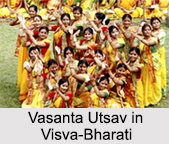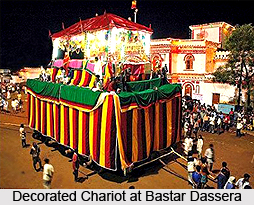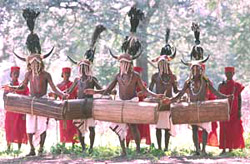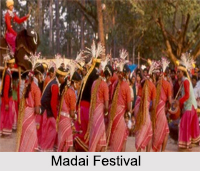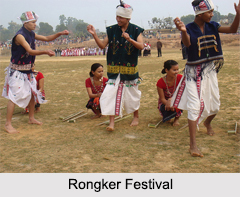 Rongker is a festival that is observed to pacify local deities who are associated with the village`s welfare as well as to get rid of all bad happenings. The festival is observed at the beginning of the New Year that is in the month of April. It is mainly celebrated among the Karbi Tribe. It is the major springtime festival celebrated among Karbisin the month of April at the same time Punjab celebrates Baisakhi, Assamese celebrates Rongali Bihu.
Rongker is a festival that is observed to pacify local deities who are associated with the village`s welfare as well as to get rid of all bad happenings. The festival is observed at the beginning of the New Year that is in the month of April. It is mainly celebrated among the Karbi Tribe. It is the major springtime festival celebrated among Karbisin the month of April at the same time Punjab celebrates Baisakhi, Assamese celebrates Rongali Bihu.
Main reason behind the celebration of the festival is to make people free from all the diseases and natural calamities throughout the year.
Rituals of Rongker
There are ten earthen alters installed against in the eastern side of the site where the festival is supposed to be held. They are kept in a row that faces the south-north direction.
This festival lasts for three days. The villagers contribute in cash and kind to meet the expenses of the rituals. The festival can be categorized into four parts:
•Sadi is a process where all the deities are invoked.
•Karkli: In this ritual the deities are worshipped in two manners - Kibo-kaba, offering meals to the deities and Koia-abida, offering areca-nut and betel leaves to the deities. All the men take part in the festival. The main rituals are performed by the main priest who is assisted by other religious specialists, the village headman. A feast is organized when the ritual is over.
•Rongphu-Rongling-Kangthin: This ritual is performed at the night of the second day of the festival. The evil spirits are driven out from the lower to the upper part of the village by dancing. At the end o the village road an altar is made where a chicken is sacrificed in the name of a deity.
•Langhe Rongker is the concluding part of the festival which is observed at the third day of the festival. It is performed near a ghat by making alter and sacrificing a cock in the name of the tiger god.
Some activities are not to be performed during this period like: Husking, female folk is not supposed to participate, no agricultural activities, no villager is allowed to depart the village. During this festival twelve deities are worshipped. They are Longri sarpo, Hemphoo, Mukrang, Rosingja, Bamun, Ningding Sarpo, Rit-Anglong, Than, Murti, Arlock, Kuthepi and Theng.

